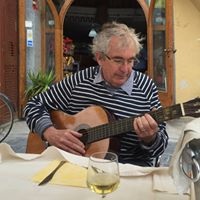What animals are traditionally let loose in the New Forest, England, to get rid of acorns that are poisonous to livestock?
Pannage is the practice of releasing domestic pigs in a forest, so that they can feed on fallen acorns, beechmast, chestnuts or other nuts. Historically, it was a right or privilege granted to local people on common land or in royal forests.
Pannage is no longer carried out in most areas, but is still observed in the New Forest of Southern England, where it is also known as common of mast. It is still an important part of the forest ecology, and helps the husbandry of the other New Forest livestock – pigs can safely eat acorns as a large part of their diet, whereas excessive amounts may be poisonous to ponies and cattle.
The minimum duration of the New Forest pannage season is 60 days, but the start date varies according to the weather – and when the acorns fall. The Court of Verderers decides when pannage will start each year. At other times pigs are not allowed to roam on the forest, with the exception that breeding sows (known as "privileged sows") are by custom allowed out, providing that they return to the owner's holding at night and are not a nuisance. The pigs each have several nose rings clipped into their noses to prevent them rooting too much and causing damage to grassland.
More Info:
en.wikipedia.org










